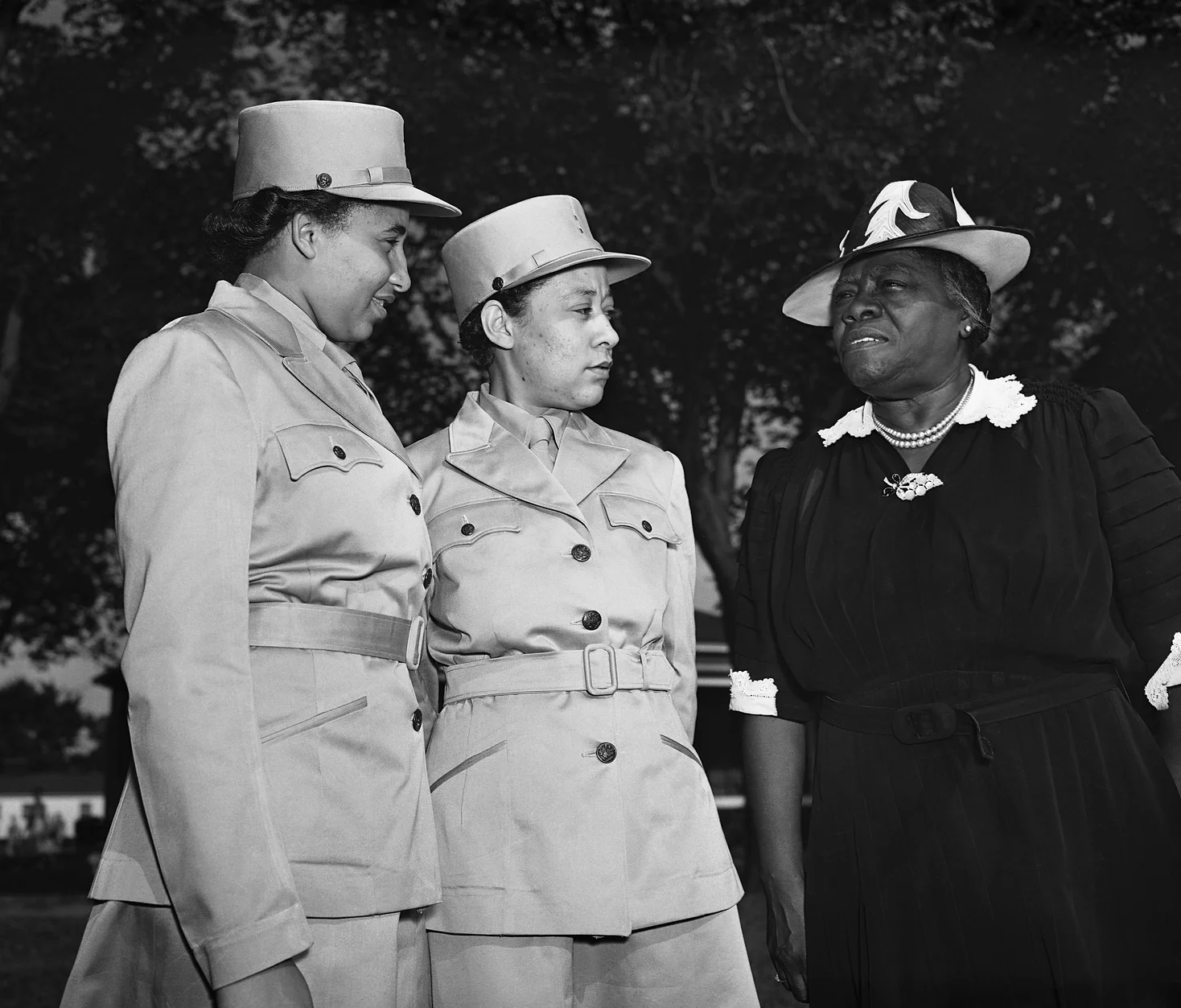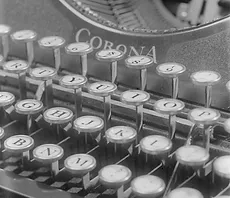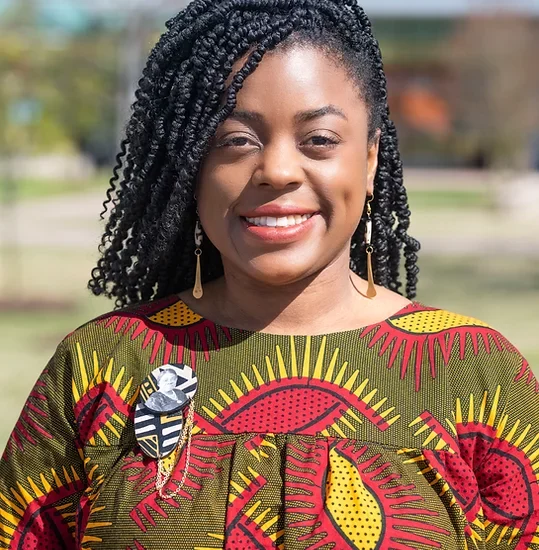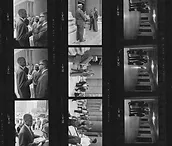Photo by Bettmann Collection/Getty Images
Conversations about World War II focus heavily on the efforts of men and ignore the importance of the women who served and those left behind, whose homefront work provided critical support. At a time when much of the world was focused on Axis and Allied forces, Mary McLeod Bethune saw military service and defense-related jobs as an opportunity for Black women to become a part of history.
When the Women’s Army Auxiliary Corps (WAAC) was created in 1942, it was the first time that women could serve in the Army in roles other than as nurses. Bethune worked tirelessly to ensure that Black women were a part of the corps (and she is pictured here, at right).
Having worked closely with the Roosevelt administration as Director of the Division of Negro Affairs for the National Youth Administration, Bethune was one of the most influential leaders of her time. As founder of the National Council of Negro Women and president of Bethune-Cookman College, she was a fierce advocate for civil rights, and she used her voice to bring attention to issues of inequality and discrimination.
As African Americans fought in WWII, they equally sought to challenge white supremacy at home. The “Double V Campaign” called for victory abroad and victory at home as African Americans strategically linked the need to eliminate the evils of Jim Crow with the need to end fascism across the world.
Despite the discrimination they faced at the hands of the United States, African Americans served their country valiantly. Bethune urged Black women to rise to the occasion of wartime activities, and in 1942 she accepted the position of Special Assistant to the Secretary of War for the selection of candidates for the WAAC Officer Training School. She carefully handpicked the first 40 women of the corps. With Bethune’s persistence, some 6,500 African American women served as WAACs over the course of WWII.
One of those women was Dovey Johnson Roundtree. In her autobiography, Justice Older Than the Law: The Life of Dovey Johnson Roundtree, Roundtree wrote: “Watching Dr. Bethune fight so hard over so many months for a place for [B]lack women in the military, I came to the conclusion that for all my reservations and fears, I couldn’t turn away from her challenge.”
For many of the WAACs it was a daunting experience to assume roles that had not previously existed. There was also the extra layer of pressure of being the first Black women to serve in this capacity. In their noncombat positions the women served as clerical workers, cooks, phone operators, and medical staff.
The two women in the photo, Vera Harrison of Wilberforce, Ohio, and Mary Bordeaux of Louisville, Kentucky, were members of the first graduating class of officer candidates in the WAACs. Harrison later was deployed to England and France along with 816 other women as a part of the 6888th Central Postal Directory Battalion, as she rose to the rank of Commanding Officer of Company C. The 6888th was the only African American women’s military unit to go overseas during World War II.
In her role as the president of the National Council of Negro Women, Bethune ensured that the Black community supported the WAACs. The organization’s Aframerican Women’s Journal featured important articles on the WAACs, which included stories about the director, Oveta Culp Hobby, an outline of the daily activities of the WAACs, and the historical significance of their positions. The organization urged journal readers to support the women by writing them letters and sending care packages, and published their mailing addresses.
Throughout the war, Bethune continued to make herself available to the women of the corps, and those whom she selected remained able to call on her if they needed her assistance. She inspected living conditions in training camps in Des Moines, Iowa, and she kept herself abreast of the overall well-being of the women.
The photograph shows Bethune speaking with the women during a visit to Des Moines. Remembering the sobering effect of Bethune’s visit, Roundtree wrote: “She gathered her girls about her … and reminded us of our place in history… Dr. Bethune transformed the atmosphere of those uneasy hours with a few carefully chosen words.”
African American women rose to the occasion of participating in World War II. As a visionary leader, Mary McLeod Bethune saw entrance into the corps as an opportunity to make history and take a major step toward creating a more inclusive military.

Learn more:
Evans, Stephanie Y., Andrea D. Domingue, and Tania D. Mitchell. Black Women and Social Justice Education: Legacies and Lessons. Albany: State University of New York Press, 2019.
Jones, Ida. Mary McLeod Bethune in Washington, D.C.: Activism & Education in Logan Circle. United States: History Press, 2013.
McCabe, Katie and Dovey Johnson Roundtree. Justice Older Than the Law: The Life of Dovey Johnson Roundtree. Jackson: University Press of Mississippi, 2009.
Robertson, Ashley N. Mary McLeod Bethune in Florida: Bringing Social Justice to the Sunshine State. United States: Arcadia Publishing, 2015.





